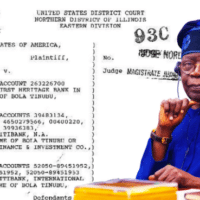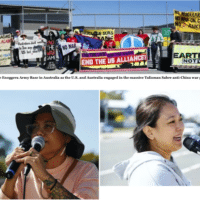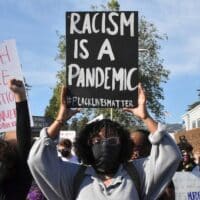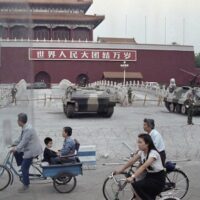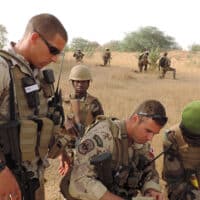-
Oppenheimer Paradox: Power of science, weakness of scientists
The bomb dropped on Hiroshima in 1945 heralded the atomic age and ushered in the military-industrial complex that took over the United States.
-
What we lose through the ghettoisation of urban India
The gigantic question is, is there a way out? It gets harder everyday with the kind of blatantly divisive social atmosphere which is promoted by the powers that be.
-
The deadly intersection of labor exploitation and climate change
As temperatures soar in the United States this summer, some among us are lucky enough to be able to remain in air-conditioned interior spaces, ordering food, groceries, clothing, and other products to be delivered to us.
-
Beyond Niger: How ECOWAS became a tool for Western imperialism in Africa
Niger is shaping up to be the surprising frontline of the new Cold War.
-
U.S. pressures Saudi Arabia to sell oil in dollars, not Chinese yuan, amid Israel negotiations
As part of negotiations for Saudi Arabia to recognize Israel, the United States is demanding that Riyadh keep pricing its oil in dollars, not China’s renminbi or other currencies.
-
A primer on the occupation of Western Sahara
As Israel recognizes the sovereignty of Morocco over Western Sahara, it is imperative that we stand in solidarity with the indigenous Sahrawis and their right to self-determination.
-
New York Times helps Marco Rubio push persecution of antiwar leftists
Citing a recent McCarthyite smear piece by The New York Times, Senator Marco Rubio published a letter on Wednesday that he’d sent to Attorney General Merrick Garland calling for the investigation of American leftist antiwar groups, claiming they are “tied to the Chinese Communist Party (CCP) and operating with impunity in the United States.”
-
ECOWAS approves military action in Niger ‘as soon as possible’
Ivory Coast President says the aim of the military operation is to “restore” ousted president Mohamed Bazoum.
-
Eritrea celebrates freedom
Eritrea is an example of an independent and self-determining African state. Its people are rightly proud of their history.
-
Niger: Aftermath of the fall of Qadhafi in the African Sahel
Niger is one of the countries located in the Sahel region, perhaps the most historically exploited area in the world. It is the southern fringe of the Sahara, which divides the Maghreb from sub-Saharan Africa.
-
Shooting the messenger: Adverse health trends revealed in the NFHS (5) 2019-2021
Economists have put forward all kinds of fallacious arguments to justify the prolonged fall in per capita food spending, and hence in nutritional intake, in India, such as mechanisation leading to lower energy needs, change in the age structure of the population, change in tastes and so on.
-
Russia, Donbass and the reality of conflict in Ukraine
Between 2014—the real start of the war when the Ukrainian government began attacking its own people in the Donbas—and the beginning of Russia’s intervention in February 2022, around one million Ukrainians had already immigrated to Russia.
-
From Chi-Town bagman to ECOWAS chairman: meet the former money launderer leading the push to invade Niger
Since the overthrow of Niger’s U.S.-friendly government, West African nations of the ECOWAS bloc have threatened an invasion of their neighbor. Before leading the charge for intervention, ECOWAS chair Bola Tinubu spent years laundering millions for heroin dealers in Chicago, and has since been ensnared in numerous corruption scandals.
-
Biden sends $345 million weapons to Taiwan: Activists protest U.S.-Australia anti-China war games
This is the first part of a $1 billion weapons transfer directly from Pentagon stockpiles to Taiwan this year.
-
Biden is risking war with Iran—and the media is ignoring the danger
The Biden administration plans to station Marines on commercial ships in the Persian Gulf. This could trigger war with Iran, but most of the mainstream U.S. press is not paying attention.
-
U.S.: Racist denialism takes hold in Florida
https://resumen-english.org/2023/08/us-racist-denialism-takes-hold-in-florida/
-
NBC cites balloon ‘threat’ in fawning coverage of NORAD
The “Chinese Spy Balloon” has been an important story for fueling New Cold War animus against China, but it is based on a dubious premise.
-
New book reveals Tiananmen square massacre, others fabricated by U.S.
A new book reveals that numerous atrocities that the United States had alleged to have been committed by its foes never happened to begin with.
-
Burkina Faso & Mali vow to defend Niger’s new leadership with force
Burkina Faso and Mali have declared their willingness to defend Niger with armed force if France, Nigeria, or ECOWAS (the Economic Community of West African States) were to intervene in Niger following the recent change of power.
-
Democracy far down list of Canadian interests in Niger
Military coups are generally bad. Foreign invasions even more so. What then to think of the situation in Niger? While the political situation in the west African country is fluid, some facts are incontrovertible. An (at least nominally) elected president was ousted by the presidential guard after demoting its leader. The pro U.S./French President Mohamed […]


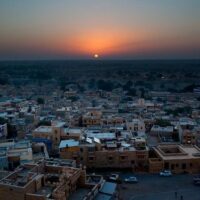
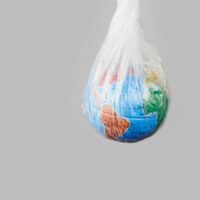
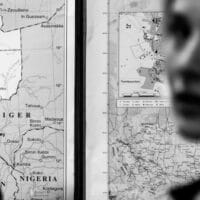
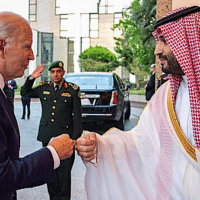
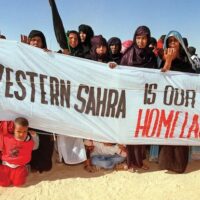
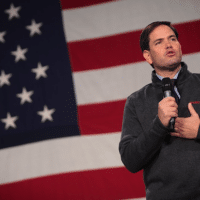
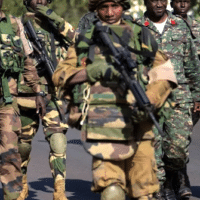
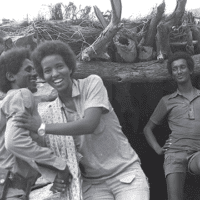
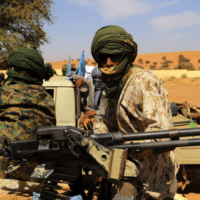

![Cathedral in Donbas destroyed by Ukrainian bombing in 2014. [Source: Photo courtesy of Dan Kovalik]](https://mronline.org/wp-content/uploads/2023/08/Screenshot-2023-08-11-at-84734-AM-200x200.png)
